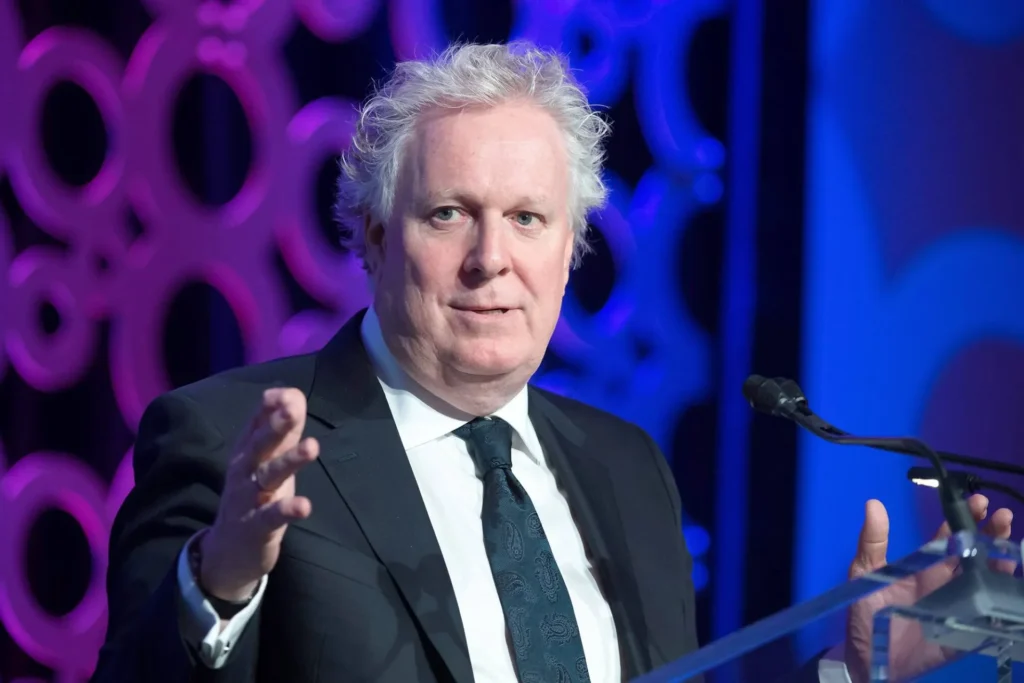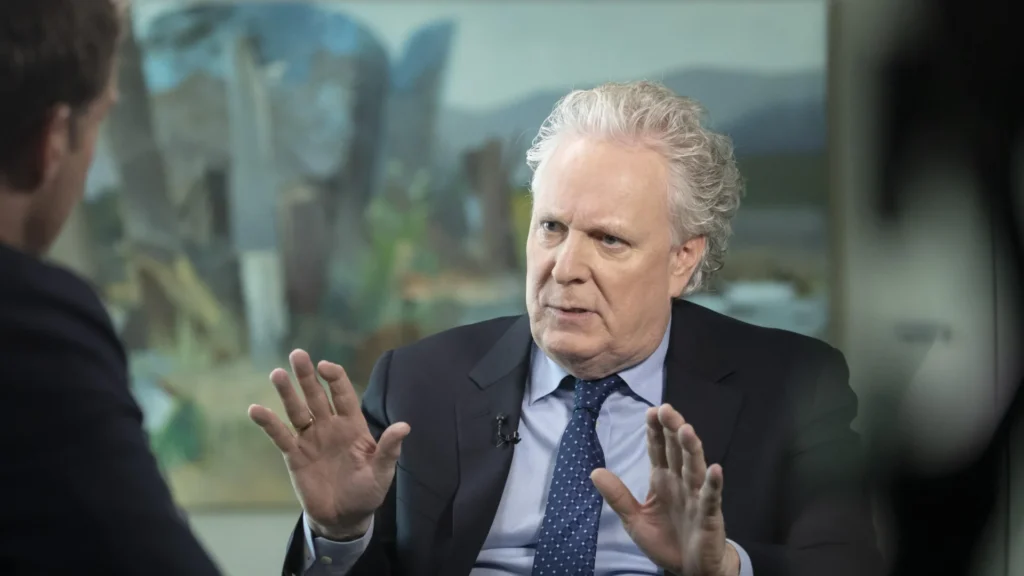Fortune Jean Charest: The Evolution of his Political Career and its Economic Impact in Canada
Fortune Jean Charest
Jean Charest, former Premier of Quebechas enjoyed an interesting financial trajectory throughout his political career.
In the 1980 and in the early 1990he received a modest salary of around 50 000 $ per year as a Member of Parliament. His remuneration increased to almost 100 000 $ between 1993 and 1998.
Today, Jean Charest's financial worth seems to have risen considerably, with estimates suggesting that he could earn a base salary of between $1 and $1.3 million in the private sector.

This progression illustrates the journey of a politician who has capitalized on the experience and connections built up during his years in public service.
After leaving active politics, Charest continued to generate substantial revenues.
During a brief stint as a professional, he reportedly pocketed a remuneration of around 70 000 $ in just two months, demonstrating its ability to monetize its expertise and network.
Biography of Jean Charest
Jean Charest is a Canada's leading political figurehaving served as Premier of Quebec for almost a decade. His record illustrates a rich political career spanning various levels of government.
Early Life and Education
Jean Charest was born on June 24, 1958 à Sherbrookeat Quebec. Born into a Quebec family, he grew up in the Eastern Townships, a region that would remain important throughout his political career.
After high school, he turned to the legal field.

He studied law and graduated before becoming a lawyer. This legal training provided him with essential skills that he would later use in his political career.
His youth and upbringing in Sherbrooke shaped his political vision and his attachment to his native region.
Initial Political Career
Jean Charest entered federal politics in the election of 1984becoming a member of parliament under the Brian Mulroney. His career progressed rapidly and he joined the ministerial cabinet in 1986.
After several years on the federal scene, Charest made a major shift to provincial politics.
He took over the management of Quebec Liberal Partythe Parti Québécois' main opponent.
Visit 2003Jean Charest won the provincial election to become the new president. 34th Premier of Quebec. His government was re-elected in 2007but with a reduced majority. He will remain at the head of Quebec until 2012who ruled the province for almost a decade.
Role in Quebec's political landscape
For almost two decades, Jean Charest has had a profound impact on Quebec's political history. His career illustrates an influential political career that shaped Quebec's direction in the early 20th century. 21st century.

Leadership within the Quebec Liberals
Jean Charest became leader of the Quebec Liberal Party in 1998, having left the federal scene to lead the Progressive Conservative Party. His arrival revitalized the Quebec Liberals, who had been in opposition since 1994.
Under his leadership, the QLP developed a platform focused on the economy and Canadian unity. Charest succeeded in bringing together various factions within the party, creating an effective political coalition.
Visit 2003He led the Liberals to electoral victory, ousting the Parti Québécois from power. This success was repeated in 2007 with a minority government, then in 2008 with a return to a majority. His longevity as Liberal leader (1998-2012) is a testament to his ability to maintain caucus cohesion.
Confrontations with the Parti Québécois
The relationship between Charest and the Parti Québécois was characterized by a fundamental ideological opposition on the national question. Charest, a fervent federalist, positioned himself as a bulwark against the PQ's sovereignist aspirations.
Faced with Bernard Landry and then Pauline Marois, he maintained a hard line against any referendum project. This stance won him considerable support in the traditionally federalist regions of Quebec.

Debates between Charest and the PQ leaders have often dominated Quebec politics. These confrontations have sometimes been tense, particularly on issues such as Quebec identity and relations with the federal government.
Impact on the provincial political scene
Jean Charest's influence on Quebec politics extends beyond his party. During his nine years as Premier (2003-2012), he refocused government priorities on the economy and public finances.
His pragmatic style of governance transformed the political approach in Quebec. Charest introduced reforms in several areas, notably health and education, often at the cost of confrontations with unions and student movements.
The end of his mandate was marked by the student crisis of 2012, which contributed to his electoral defeat. Despite this difficult conclusion, his political legacy remains significant in the Quebec landscape, having governed during a crucial period of economic and social transition.

Security Policies and Measures
Jean Charest implemented a number of safety initiatives during his tenure as Premier of Quebec from 2003 à 2012. These measures were designed to protect citizens against various computer threats, while respecting their rights.
Fighting Spam and Fraud
Under the Charest government, Quebec has stepped up its efforts against unwanted communications and online scams. The administration created a special unit within the Sûreté du Québec to track down electronic fraud.
This initiative focused particularly on protecting the elderly, who are considered more vulnerable to scams. The government has launched several information campaigns to educate the public about the risks.
In 2009, the Charest administration established a partnership with financial institutions to block phishing attempts. This system made it possible to quickly report and neutralize fraudulent sites imitating Quebec banks.
Privacy Policy
The Charest government has modernized the legislation on information protection personal information. The Act respecting access to documents held by public bodies has been amended to reinforce security requirements.
These changes imposed stricter standards on government agencies regarding the storage and transmission of sensitive data. Government departments were required to report data breaches within 72 hours.
Jean Charest also mandated the creation of a committee of experts to develop security protocols adapted to new technologies. This committee produced recommendations that have become the basis of current government practices.
In 2011, a provincial cybersecurity center was inaugurated to centralize the monitoring of computer threats to Quebec's critical infrastructures.
Advertising and Privacy
Managing advertising and privacy is a crucial issue in today's digital world. Platforms must balance their commercial needs with respect for users' rights.
Cookies and Personalized Advertising Policy
Websites use cookies to track user behavior. This technology makes it possible to collect data on browsing habits in order to offer targeted advertising. French law requires sites to clearly inform visitors about the use of cookies.use of cookies.
Cookies can be divided into several categories: essential, functional, analytical and advertising. Essential cookies are necessary for the site to function, while others are optional.
Personalized advertising is based on the analysis of user data. This practice raises important ethical questions about privacy. The RGPD has tightened the rules by imposing greater transparency on companies.
Privacy and Consent Settings Management
Explicit consent is now required before any data can be collected. personal data. Users must be able to easily accept or refuse the use of their data.
Sites usually offer a preference center where privacy settings can be modified. Typical options include:
- Acceptance or rejection of non-essential cookies
- Setting advertising preferences
- Request for access or deletion of personal data
Users have the right to withdraw their consent at any time. This possibility must be as simple as the act of giving initial consent.
Transparency is essential when managing privacy settings. Sites must clearly explain how data is used and with whom it is shared.
Service Development and Audience Research
Jean Charest's financial growth strategy is based on modern methods of data analysis and audience research. These techniques enable us to optimize our services and increase our market value.
Use of Geolocation Data
Geolocation data plays a crucial role in the expansion of Jean Charest's professional services.
Traveling between Quebec, Paris and other business centers, his team analyzes the regions where his presence generates the most interest.
This strategic approach enables us to identify the most profitable markets for our conferences and consultations. For its activities in Paris, mentioned in search results as "La belle vie parisienne", this data guides its choice of events.
Geographical analyses also reveal the economic sectors most receptive to its services. This method ensures efficient use of time and maximizes revenue.
Content Measurement and Audience Analysis
Audience analysis is a central pillar in the valuation of Jean Charest's services. According to sources, his meetings can be priced at up to 500 $ per person. This price is justified by a precise study of his clientele's expectations.
His team systematically evaluates the impact of his presentations and media interventions. This evaluation enables us to adjust our speeches and target the topics that attract the most interest from major corporations and investment funds.
The data show that his consultancy work for an investment fund earns him 120,000 euros a year. These analyses help him to identify the sectors where his expertise is most valued, and to adapt his service offering accordingly.
User authentication and protection
Online security requires robust measures to protect personal information. This is particularly important in cases involving public figures such as Jean Charest.
Authentication policies and methods
Authentication systems play a crucial role in protecting sensitive data. On many platforms, a username and password identification system is used.
These mechanisms are designed to ensure that only authorized persons have access to confidential information. Best practice recommends the use of complex passwords and two-factor authentication.
For sites dealing with sensitive information such as the salaries or residences of political figures like Jean Charest, these measures are particularly important.
IP Address and Search Data Considerations
IP addresses can reveal information about users' location and identity. In the context of research into Jean Charest, this data could be particularly sensitive.
Websites generally collect search data from users, which may include :
- Search terms used
- Viewed pages
- Time spent on each page
- Device used
This information can be protected by strict confidentiality policies. In the case of the lawsuits mentioned where Jean Charest alleges a violation of his privacy, the protection of research data becomes an important legal issue.
Organizations must be transparent about their use of data and obtain appropriate consent from users.
Partnerships and Collaborations
Jean Charest developed a number of strategic partnerships during and after his political career. These collaborations demonstrate his economic vision of open markets and international trade.
Relationship with technology giants like Yahoo
Jean Charest has shown a particular interest in economic partnerships with technology companies. Although specific information on his relationship with Yahoo is limited, Charest has consistently encouraged investment by tech giants in Quebec during his tenure as Premier.
His vision of public-private partnerships (PPPs) has persisted despite criticism. This approach has shaped his strategy for attracting companies like Yahoo to the Quebec market.
Charest also worked to establish major trade agreements, notably with Europe and China. He proposed an economic partnership agreement with China based on the European model.
His negotiating skills earned him advisory positions after his political career, generating substantial income such as the 120,000 euros a year mentioned for an investment fund.
Summary
Jean Charest, former Premier of Quebec, has undergone a remarkable financial evolution since his political beginnings. From a modest salary as a Member of Parliament, he went on to earn a much higher income after his political career, thanks in particular to his work as a legal advisor and his speaking engagements. His current fortune is estimated at over 22 million Canadian dollars. Charest has capitalized on his network and experience to establish himself in the private sector. This trajectory is a perfect illustration of how a political career can open lucrative doors, both nationally and internationally, in the legal, economic and strategic fields.
Frequently asked questions
Jean Charest, former Premier of Quebec, raises many questions about his personal and professional life. Here are answers to frequently asked questions about his wealth, family and career.
How old is Jean Charest now?
Jean Charest was born on June 24, 1958. In March 2025, he will be 66 years old. His political career began at a young age, when he became a federal MP at just 26.
Who is Jean Charest's new wife and what is her background?
Jean Charest has been married to Michèle Dionne for several decades. They were married in 1980 and have never divorced. Michèle Dionne maintained a relatively low profile during her husband's political career, while remaining involved in various humanitarian causes.
Can we find out more about Jean Charest's son and his career?
Jean Charest and Michèle Dionne have three children: two daughters, Amélie and Alexandra, and a son, Antoine. Antoine Charest chose a different career path from his father, preferring to avoid politics and the media.
Where does Jean Charest currently practice, and in what field?
Jean Charest currently works as legal counsel at McCarthy Tétrault. According to available information, his base salary is between $1 and $1.3 million, making up a significant part of his fortune.
He also briefly held a position that earned him almost 70,000 $ in just two months, demonstrating his ability to generate significant income since leaving politics.
What are Isabelle Charest's achievements as Minister?
Isabelle Charest, who is not directly related to Jean Charest, served as Quebec's Minister for Education and Minister responsible for the Status of Women. A former Olympic speed skater, she is particularly committed to promoting sport and physical activity.
Which comedian holds the title of Quebec's richest?
Martin Matte is one of Quebec's richest comedians. However, it's hard to say for sure who is the "richest". Other comedians, such as Louis-José Houde and Sugar Sammy, have also enjoyed great financial success.







